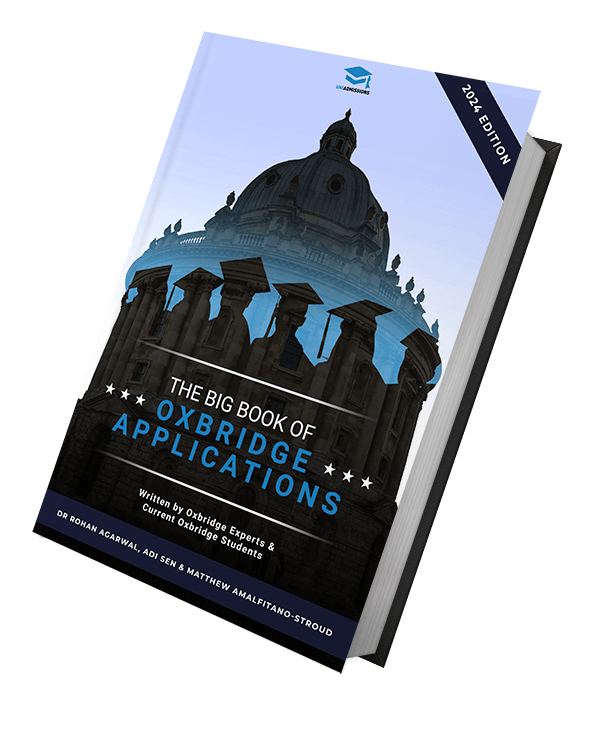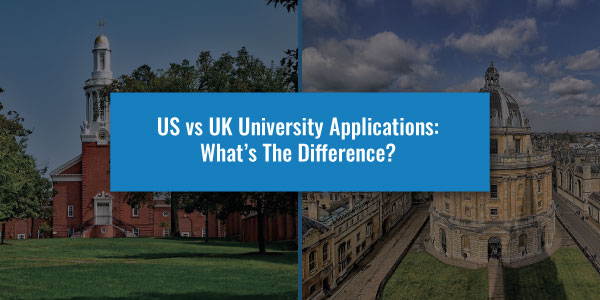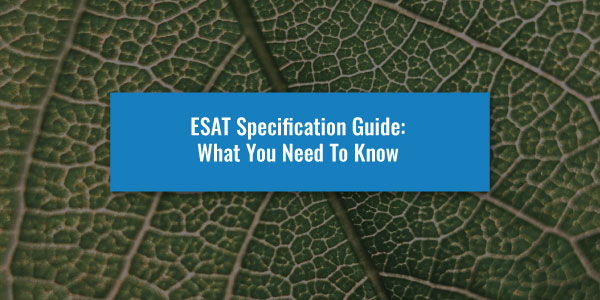If you’re an applicant from outside of the UK hoping to study at the University of Oxford or the University of Cambridge, you’ll have a lot on your plate currently. From the standard application process to working your way around fees and visas, there’s plenty to be doing. But on top of that, you’re also going to have to think about which Oxbridge college you want to attend.
Oxford and Cambridge have run on a collegiate system for hundreds of years and is one of the most unique parts of the Oxbridge experience. With over 30 colleges in each university to pick from the decision can be hard as they are all so varied and offer different perks and drawbacks.
However, you may be wondering; is there a college that’s best for international applicants? In this guide, we’ll explore this question to see if any colleges at Oxbridge are best suited for those from outside the UK, as well as look at what else you should consider when selecting your college. When you’re ready, let’s begin!
What Are Oxbridge Colleges?
If you aren’t already aware, we’ll quickly define what an Oxbridge college actually is. As stated before, both Oxford and Cambridge run using a collegiate system and have the most extensive selection of colleges in the UK.
Oxford
39 Colleges
Cambridge
31 Colleges
But what are these colleges? Essentially, each college acts as a semi-individual institution housed within the wider university. Your college is responsible for a wide variety of things during your time at Oxbridge:
- Admissions Process (shortlisting, interviews, sending offers, etc)
- Accommodation
- Teaching (including supervisions/tutorials)
- Catering (each college has its own hall)
- Libraries (most colleges have exclusive libraries separate from the general university and subject department libraries)
- Formal Events (dinners, parties, etc)
Colleges each have their own faculty and leaders who are there to support students with any of these factors. Each college will generally tend to run these factors in its own unique fashion, based on its traditions, history and characteristics. Generally speaking, your college plays a massive role in your university experience, which is why it’s so important to choose one that’s right for you.

Worried about your chances of Oxbridge success as an international applicant?
At UniAdmissions, we’ve had over a decade of experience supporting Oxbridge applicants from across the globe. Our formula for success boosts the application strength on any applicant to give them the best chance of earning their offer.
Discover our Oxbridge Premium Programmes by booking a free consultation session or clicking the button below to enrol and triple your chances of success.
What Are The Best Oxbridge Colleges For International Applicants?
Now that we understand what colleges are at Oxbridge, it’s time to consider if there are any that you should specifically be applying to as an international applicant. Let’s explore a few different questions to see if we can find an answer:
Does Oxford or Cambridge have international only colleges?
No, all colleges at Oxford and Cambridge allow UK applicants to apply. However, international applicants are also welcome at all colleges, so there aren’t any restrictions on where you can apply.
Do Colleges Have Any Quotas For International Applicants?
The only quota relating to international applicants at either university is for their medicine degrees, which tend to limit international intake to just 7.5%. This is a nationwide quota and is generally enforced by the universities as a whole rather than the colleges, although this will impact their decisions. Other than that, there aren’t any specific figures that colleges need to meet for international admissions.
Are Some Colleges Easier For International Applicants To Enter?
While some colleges do have a higher percentage of International students than others, it isn’t really possible for the application process to be easier at any college. This is because all colleges will have roughly the same admission requirements for your course (admissions test, submitted work, Personal Statement, interviews), and these are mostly equal in difficultly no matter where you apply.
It’s generally not advisable to try and choose a college strategically to have a better chance of success, as colleges will often seek applicants from other colleges if they feel the quality of their applicants isn’t strong enough. Cambridge is more well known for doing this as they have the Winter Pool in place that offers applicants a chance to interview at a different college if they were unsuccessful at theirs.
Overall, your application will have to be up to the standards of Oxbridge in order to be successful, so there isn’t really a way to work around this.
Do Oxbridge Colleges Offer International Bursaries or Scholarships?
There are various bursaries and scholarships available from both the colleges at Oxbridge and the Universities themselves. While there are typically more bursaries available for UK applicants, you will be able to find a variety for those overseas as well, especially for applicants from under-represented countries.
At Oxford, one of the primary scholarship options is the Reach Oxford Scholarship. This scholarship covers a full 3 – 4 years of study and is available for is available to applicants from countries that receive official development assistance from the Development Assistance Committee (DAC) of the Organisation for Economic Co-operation and Development (OECD). However, only 2 – 3 of these are awarded each year and not every college takes part in the scheme, so you will need to check this before applying.
Cambridge offers the Cambridge International Scholarship, which offers the same level of funding but is only available for those applying to study for a Master’s degree.
Are things different for EU applicants?
No. While previously, EU applicants would have had different tuition fees and options available than other international applicants, the implementation of Brexit means that all EU applicants are now considered the same as non-EU applicants (although their admissions data is often reported separately).
So, we can gather from this information that there isn’t really a best choice when it comes to colleges for international applicants at Oxbridge. We’ve seen that all colleges accept international applicants, have no specific admissions quotas and offer similar support to applicants, so one other question may be in your mind:
Should I Submit an Open Application To Oxford or Cambridge?
An open application is when an applicant does not wish to select a specific college to attend. While this may seem like an easier option if you don’t mind where you study, there are two reasons why this isn’t a good idea:
Colleges are wildly varied from one another, so you may be missing out on attending a college that suits you really well if you don’t do the research and specify where you want to apply.
A smaller percentage of applicants who submitted an open application got their place compared to those who selected a college. While there isn’t any specific bias towards non-open applications, it’s still something to consider when applying.
Doing the research now will ensure you have the best Oxbridge experience possible once you’ve gotten the offer. If you want a starting point for your research, we would suggest checking out our Oxford and Cambridge College guides, which feature summaries of all 70 colleges at Oxbridge.

Access "The Big Book Of Oxbridge Applications" For FREE
Your college selection is just one part of the Oxbridge application process, so learn everything you need to know in The Big Book Of Oxbridge Applications, available for free! Through over 350 pages, you will find:
- 28 example Oxbridge Personal Statements
- Over 40 admissions test practice questions
- Interviews with Oxbridge students and graduates
- Additional downloadable resources
Fill in your details below to claim your digital copy today!

Oxbridge College Data For International Applicants
While we’ve determined that there isn’t a specifically good college for international applicants, we still have data to review which may help you make up your mind. This data comes from the University of Oxford and details how many international applicants were admitted to each college between 2020 and 2022 (please be aware that not all colleges were included in this report).
Oxford International College Admissions (2020 - 2022)
| College | Applicants | % of Total Applicants | Offers | % of Total Offers | Offer Rate | Acceptances | % of Total Acceptances | Acceptance Rate |
|---|---|---|---|---|---|---|---|---|
| Balliol College | 1,385 | 44.1% | 101 | 26.7% | 7.3% | 78 | 22.7% | 5.6% |
| Brasenose College | 889 | 32.1% | 69 | 17.0% | 7.8% | 51 | 15.9% | 5.7% |
| Christ Church | 1,350 | 45.3% | 110 | 24.3% | 8.1% | 88 | 21.2% | 6.5% |
| Corpus Christi College | 573 | 42.2% | 62 | 24.7% | 10.8% | 54 | 23.0% | 9.4% |
| Exeter College | 848 | 38% | 80 | 23.3% | 9.4% | 67 | 21.1% | 7.9% |
| Harris Manchester College | 339 | 65.6% | 74 | 57.9% | 21.8% | 60 | 57.7% | 17.7% |
| Hertford College | 1,016 | 36.3% | 60 | 15.1% | 5.9% | 51 | 13.7% | 5.0% |
| Jesus College | 904 | 39.4% | 80 | 22.2% | 8.8% | 64 | 19.1% | 7.1% |
| Keble College | 987 | 29.7% | 78 | 17.9% | 7.9% | 67 | 16.0% | 6.8% |
| Lady Margaret Hall | 793 | 35.3% | 84 | 21.4% | 10.6% | 72 | 20.0% | 9.1% |
| Lincoln College | 588 | 34.3% | 66 | 22.1% | 11.2% | 58 | 20.6% | 9.9% |
| Magdalen College | 1,257 | 36.7% | 92 | 23.9% | 7.3% | 74 | 20.8% | 5.9% |
| Mansfield College | 440 | 33.3% | 49 | 18.6% | 11.1% | 42 | 17.6% | 9.5% |
| Merton College | 767 | 37.9% | 81 | 27.0% | 10.6% | 61 | 22.7% | 8.0% |
| New College | 876 | 35.0% | 43 | 10.9% | 4.9% | 36 | 9.7% | 4.1% |
| Oriel College | 814 | 45.6% | 83 | 27.3% | 10.2% | 66 | 23.5% | 8.1% |
| Pembroke College | 891 | 39.7% | 87 | 23.2% | 9.8% | 72 | 20.8% | 8.1% |
| Regent’s Park College | 168 | 41.2% | 17 | 14.8% | 10.1% | 16 | 14.7% | 9.5% |
| Somerville College | 913 | 42.3% | 76 | 19.2% | 8.3% | 65 | 17.3% | 7.1% |
| St. Anne’s College | 929 | 41.1% | 82 | 19.6% | 8.8% | 72 | 18.6% | 7.8% |
| St. Catherine’s College | 1,165 | 39.1% | 113 | 23.0% | 9.7% | 82 | 18.8% | 7.0% |
| St. Edmund College | 988 | 46.4% | 92 | 24.2% | 9.3% | 77 | 22.0% | 7.8% |
| St. Hilda’s College | 1,026 | 51.8% | 93 | 23.7% | 9.1% | 66 | 19.2% | 6.4% |
| St. Hugh’s College | 1,135 | 50.6% | 114 | 27.3% | 10.0% | 95 | 24.8% | 8.4% |
| St. John’s College | 1,448 | 40.9% | 112 | 27.2% | 7.7% | 80 | 21.9% | 5.5% |
| St. Peter’s College | 946 | 47.3% | 83 | 23.7% | 8.8% | 69 | 21.3% | 7.3% |
| The Queen’s College | 757 | 41.2% | 83 | 24.9% | 11.0% | 71 | 22.7% | 9.4% |
| Trinity College | 998 | 46.5% | 71 | 24.3% | 7.1% | 64 | 23.0% | 6.4% |
| University College | 1,492 | 52.0% | 105 | 26.1% | 7.0% | 88 | 23.8% | 5.9% |
| Wadham College | 859 | 36.9% | 90 | 20.9% | 10.5% | 73 | 18.3% | 8.5% |
| Worcester College | 793 | 21.5% | 49 | 12.3% | 6.2% | 37 | 9.8% | 4.7% |
| International Total | 28,334 | 39.8% | 2,479 | 23.4% | 8.7% | 2,016 | 19.7% | 7.1% |
| Overall Total | 71,406 | 100% | 11,125 | 100% | 15.6% | 10,253 | 100% | 14.4% |
This is a lot of data to look through, but what can we learn from it? Let’s look at some notable facts and figures from this three-year period:
University College saw the most international applicants, with 1,492 applications during this time. This made up 52% of all applications at the college, which is the second highest within this data.
26.1% of these applicants earned an offer and 23.8% were accepted, which is a fairly average result. However, the higher percentage of international applications makes the success rates lower than most other colleges (7% offer rate and 5.9% acceptance rate).
Regent’s Park College saw the fewest international applicants. However, this college’s status as a Permanent Private Hall means it receives far fewer applications in general than other colleges.
Despite this, Regent’s Park had among the lowest percentage of offers and acceptances to international applicants (14.8% and 14.7%) but still had a fairly decent chance of success here (9.5%).
Harris Manchester College was the best-performing college for international offers and admissions. While the number of applicants, offer holders and accepted students was fairly low (339, 74, 60), over 50% of this college’s applicants and successful applicants were from outside the UK (65.6% and 57.7%).
This also translated to the highest international offer and acceptance rate of any college at Oxford, with 21.8% and 17.7% respectively. This is the only college at Oxford to have an acceptance rate above 10% for international applicants.
St. Hugh’s College offered places to and admitted the highest number of international applicants, with 114 offer holders and 94 accepted applicants from outside of the UK.
International applicants made up 50.6% of all applicants and 24.8% of admitted students for this college, meaning the divide between UK and international applicants is still very noticeable. International applicants had an offer rate of 10% and an acceptance rate of 8.4%, which is above average for non-UK applicants.
New College was the most difficult college for international applicants to enter. It saw the lowest number of international offers and acceptances for a standard college at Oxford (43 and 36) while having a fairly average number of international applicants (876).
This led to the lowest % of offers and acceptances for international applicants at a college (10.9% and 9.7%) and the lowest international success rates of any Oxford college (4.9% offer rate and 4.1% acceptance rate).
Behind New College, Worcester College also saw very low statistics for international students. Worcester saw nearly 100 fewer overseas applicants (793) but admitted one more applicant than New College (37).
However, Worcester College is still the only other college to have less than 10% international students (9.8%) and an acceptance rate of under 5% (4.7%). Worcester also received the lowest percentage of international applications versus UK applicants at 21.5%.
So with this data in mind, we can assume that Harris Manchester College would be the safest pick for international applicants, as it boasts the highest success rates and greatest density of overseas students. However, Harris Manchester is a mature college, meaning only applicants who are 21 or older can apply.
The next best option would then be St. Hugh’s College, which admitted the most international applicants during this period. While the offer and success rates are fairly average, nearly a quarter of the cohort comes from outside the UK. The college claims to be diverse and informal, so this may be the best pick for you if you aren’t as interested in the traditional Oxford lifestyle.
The most difficult colleges to get into would be New College and Worcester College, which held the lowest success rates and density of international applicants. While both colleges express their commitment to diversity in their cohorts, these two may not be the best picks for international applicants unless you’re really attracted to what they offer students.
This data covers acceptances from colleges, but you may also want to learn what the success rates look like for your subject, as they can vary greatly. We’ve compiled all of this data in our Oxford Acceptance Rates Guide, so be sure to check it out!
Cambridge unfortunately has not reported equivalent data for their colleges, so we are unable to tell which colleges admitted the most international applicants there. However, if you want to learn more about Cambridge’s acceptance rates, including which international countries had the highest and lowest success rates, be sure to check out our Cambridge Acceptance Rates Guide.
While this data is useful, it’s more important that you choose your college based on its own merits and the quality of the living experience it could offer you. With that in mind, let’s look at some of the key considerations for your college selection at Oxbridge.

Things To Consider When Picking Your Oxbridge College
College Subject Specialties
One of the most important considerations for college selection is how they will teach you your course. While there aren’t any colleges that specialise in one particular subject, some colleges are known for placing more emphasis on areas like STEM or Humanities. Since your college will play a fairly large role in your studies, it may be important to apply somewhere that has a more robust offering for your subject.
A similar factor to this is the college’s academic performance. Some applicants look to college academic data (reported via the Norrington Table at Oxford and the Tomkins Table at Cambridge) to determine where they would like to study. We would advise against this, as these aren’t official lists and often report fluctuating performances for different colleges.
Even if you have entered into the worst college for your subject, you’re still guaranteed an extremely good education at Oxbridge. The reputation each university has built isn’t based on the performance of specific colleges but on the consistently high quality of teaching offered across the whole university.
College Characteristics
As we’ve said, colleges are all very different from one another, and so you should expect a fairly different experience depending on where you end up. This is sometimes as simple as a college having a greater emphasis on sports or STEM activities, but some characteristics run deeper than this.
For example, some colleges will emphasise far-left politics, such as Wadham at Oxford or Kings at Cambridge, while colleges like Peterhouse and Magdalen are far more conservative. These aren’t issues exclusive to international applicants, and no international applicant will be made to feel unwelcome, but it’s worth considering where you may best fit in based on your values.
This also goes for the atmosphere of the college too, as older colleges like St Catherine’s and St Johns are very formal and traditional, while newer ones like Lucy Cavendish and St Peters are more relaxed.
Location
The location of the college is an issue for all applicants as no one wants a lengthy commute to lectures each day. However, this issue may be a bit more serious for some international applicants who may not have access to a form of personal transportation like a bike or car.
However, even with this in mind, both cities have very good public transport networks to the centre and even the further colleges (Wolfston at Oxford and Girton at Cambridge) are only around a 20-minute walk away.
Accommodation
This issue isn’t exclusive to international applicants, but it’s still worth considering for multiple reasons.
Firstly, the quality of the accommodation varies, as well as the size of the rooms and the available amenities. While nowhere offers terrible accommodation, some of the older colleges are a bit less luxurious than the architecture would suggest. If you’re looking for something a bit more modern and functional, then a new college may be a safer pick.
Secondly, you will need to see if your college provides campus accommodation for the full term of your study or just for the first year. This will impact your decision as it is typically a lot easier to stay in college-provided accommodation for the whole of your studies. There’s also the cost to consider (see the next point).
Finances
The funding that each college receives is not equal, which may have an impact on where you apply. You may find that some applicants from richer or poorer backgrounds will gravitate towards colleges with larger or smaller funds, but the truth is that there isn’t really much of a correlation between how much funding a college has and how much it costs to live there.
In one study regarding Oxford’s colleges, it was found that 10 of the wealthiest colleges offered some of the lowest average rent prices at the university and, in some cases, vice versa. Funding isn’t directly linked to accommodation (many of the highest-funded colleges are older ones with lower-quality accommodation), so if pricing isn’t an issue then you should consider what facilities and events the college offers – this is where a fair amount of the funding goes to.
Catering
One unique element about Oxbridge is the catering for students. Each college has a catering hall that offers 3 meals a day, but this may be the only internal option at some colleges. Self-catering facilities are not standard at every college, so you will need to consider this if cooking your own food is important.
While the halls do cater to all dietary needs, the selection on offer isn’t always to everyone’s taste so having the option to make our own food could be crucial. You always have the option to get food outside of the college, but this can become very costly if you’re regularly eating out each day.
Want to learn more about student life at Oxbridge? Check out our collection of “Day in the Life” articles below:
That concludes our look at Oxbridge colleges for international applicants. It’s unfortunate that there are no easy answers to which college you should pick, but the silver lining is that you have far more options available to you rather than being restricted to a few “international-friendly” colleges. Plus, the process of choosing a college is hard for everyone, not just overseas applicants.
We hope this guide has helped inform your decision, but it’s also important to stress that your college section isn’t going to make or break your Oxbridge experience. While your college plays a big part of your experience, many processes, teaching methods and traditions are still standardised across the whole of the universities. Plus, in many cases, students have been admitted to a college that didn’t sound great at first and ended up loving their time there.
If you want to start your college research, be sure to check out our Oxford and Cambridge college guides and explore the college websites once you’ve seen some that you like. If you can, attending open days is a fantastic chance to see the colleges in person, either in person or remotely.
For now, though, we wish you the best of luck in your Oxbridge application. If you feel you could use comprehensive support through your application, be sure to explore our Oxbridge Programmes, which have consistently tripled our student’s chances of gaining their offer to study at Oxford or Cambridge. If you have questions or want to learn how to enrol, book a free consultation today to speak with one of our friendly admissions consultants.
International success rates are low, but we will triple your chances of getting an offer!
Applying to Oxbridge as an international application is incredibly difficult, so it’s important to give yourself the best chance of success. Our Oxbridge programmes support you through the entire process from UCAS to interviews, plus all the additional requirements for those applying from overseas.
Discover our Oxbridge Premium Programmes by booking a free consultation session or clicking the button below to enrol and triple your chances of success.








